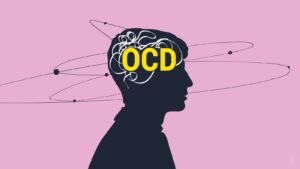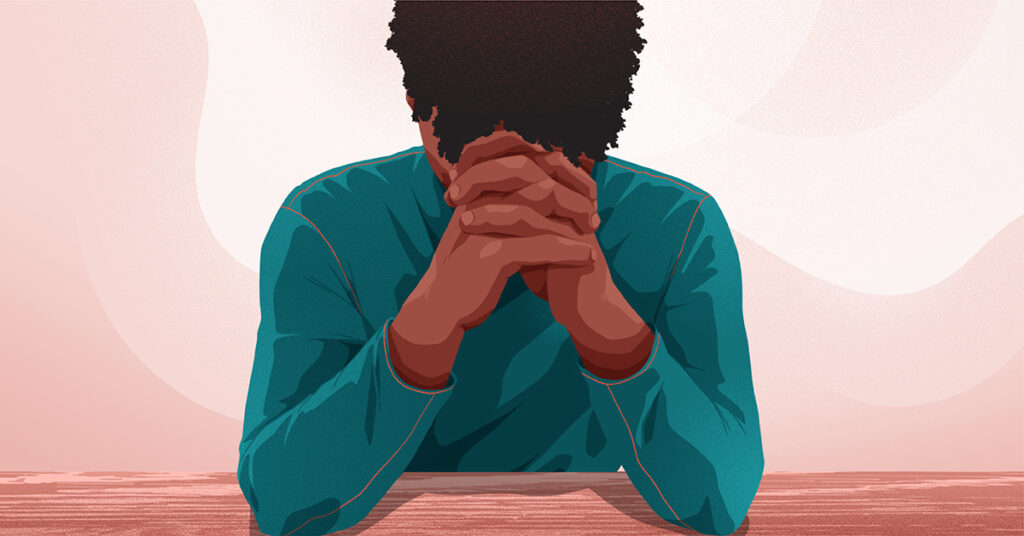Living with OCD can be a challenge. Not only do you have to worry about the constant thoughts and fears that are associated with the disorder, but you also have to deal with the negative impacts that OCD can have on your life. This can be difficult, especially when you feel like you are constantly struggling against your mind. In this blog post, we will discuss some of the most common negative impacts that OCD can have on your life.
Contents
What Is OCD?
 OCD is a mental health disorder that is characterized by obsessions and compulsions. Obsessions are intrusive thoughts, images, or urges that cause anxiety or distress. Compulsions are repetitive behaviors or mental rituals that a person feels compelled to do to reduce their anxiety or distress. OCD can have a significant impact on a person’s life, making it difficult to function at work, school, or home.
OCD is a mental health disorder that is characterized by obsessions and compulsions. Obsessions are intrusive thoughts, images, or urges that cause anxiety or distress. Compulsions are repetitive behaviors or mental rituals that a person feels compelled to do to reduce their anxiety or distress. OCD can have a significant impact on a person’s life, making it difficult to function at work, school, or home.
The causes of OCD can be biological, psychological, or environmental. OCD is often caused by a combination of factors. Furthermore, there is no single cause of OCD. Sometimes there may be many different factors that contribute to the development of OCD.
OCD is a chronic and relapsing disorder. This means that it can last for years, and people with OCD may have periods of remission (when symptoms are not as severe) and relapse (when symptoms become severe again).
Negative Impacts of OCD

There can be many negative impacts of OCD on sufferers, ranging from the physical to the mental and emotional. These can include:
Isolation
One of the major ways in which OCD can negatively impact those who suffer from it is through isolation. OCD can make sufferers feel like they are completely alone in their battle with the condition, leading to feelings of loneliness and despair. This can often lead to sufferers withdrawing from friends and family, which can further compound the problem.
Loss of productivity
Another significant negative impact of OCD is the loss of productivity that it can cause. Sufferers may find that they are unable to focus on work or study due to their obsessions and compulsions, which can lead to them falling behind in their studies or losing their job. In severe cases, this may even lead to financial difficulties.
Relationship problems
OCD can also put a strain on relationships, both platonic and romantic. The condition can make sufferers extremely demanding and difficult to live with, which can often lead to their loved ones becoming frustrated and angry. In some cases, this may even lead to the breakdown of relationships.
Depression
Depression is a common co-occurring disorder in those with OCD and can be caused by the isolation, loss of productivity, and relationship problems that the condition can cause. Also, Depression can further compound the negative impacts of OCD, making it even more difficult for sufferers to cope with the condition. If you are suffering from depression as well as OCD, it is important to seek professional help so that you can get the treatment you need.
Anxiety
Sometimes, the anxiety caused by OCD can be so severe that it leads to panic attacks. These can be extremely debilitating and may cause sufferers to avoid situations in which they fear they may have a panic attack, such as going outside or being in crowds. This can further isolate sufferers and make it difficult for them to lead a normal life.
Financial Issues
Anxiety disorders like OCD can be very costly. The need for specialized treatment missed work days, and doctor visits can quickly add up. In addition, people with anxiety disorders are more likely to have other medical conditions that require additional treatment. All of these factors can lead to significant financial problems for those with OCD.
Constant Worry
People with OCD are plagued by constant worry. This can make it difficult to concentrate on anything else and can lead to insomnia. The worry can also be so severe that it leads to anxiety and depression. Sometimes, the worry can be so overwhelming that it leads to a complete breakdown in the sufferer’s ability to function.
Impacts Brain
Anxiety disorders like OCD can have a significant impact on the brain. Studies have shown that people with anxiety disorders are more likely to suffer from cognitive problems, such as memory loss and difficulty concentrating. In addition, anxiety disorders have been linked to an increased risk of developing Alzheimer’s disease and other forms of dementia.
Causes Sufferers to Miss Out on Life
Because of the negative impacts that OCD can have, sufferers often miss out on important aspects of life. They may avoid going to social events or engaging in activities they enjoy because of their fear of triggering their obsessions or compulsions. This can lead to a feeling of isolation and can make it difficult for sufferers to live a full and fulfilling life.
Ruins Lives
The negative impacts of OCD can be so severe that they ruin sufferers’ lives. In some cases, the condition can be so debilitating that sufferers are unable to work or take care of themselves. This can lead to them becoming homeless or relying on others for support. The isolation, financial problems, and cognitive difficulties that OCD can cause can make it difficult for sufferers to rebuild their lives after they have been ruined by the condition.
The negative impacts of OCD can be severe and far-reaching. If you are struggling with the condition, it is important to seek professional help so that you can get the treatment you need. With the right treatment, you can learn to manage your OCD and reduce the negative impacts it has on your life.
How To Overcome OCD Negative Impacts?

Overcoming OCD Negative Impacts can be a difficult and daunting task, but it is possible. Here are some helpful tips:
-Acknowledge that your OCD thoughts and behaviors are not rational.
-Challenge your OCD thoughts by asking yourself if there is evidence to support them.
-Avoid avoidance! Facing your fears is an important part of overcoming OCD.
-Find a therapist or counselor who specializes in treating OCD.
-Participate in a support group for people with OCD.
-Stay away from people, places, and things that trigger your OCD symptoms.
-Make healthy lifestyle choices, such as eating a balanced diet and getting enough exercise.
These tips can help you overcome the negative impacts of OCD and live a happy, fulfilling life. If you or someone you know is struggling with OCD, please seek professional help. OCD is a serious condition that can be effectively treated with medication and/or therapy.
Conclusion
OCD is a serious mental illness that can have devastating effects on a person’s life. If you or someone you know is struggling with OCD, it’s important to seek professional help. With treatment, many people with OCD can live happy and fulfilling lives.
If you or someone you love is dealing with the negative impacts of OCD, there is hope. Furthermore, With proper diagnosis and treatment, many people can live normal, healthy lives. Seek professional help if you think you may be struggling with OCD. The sooner you get help, the better chance you have at living a fulfilling life despite your disorder.
Hope this article was of help to you! If you are suffering from OCD, you may seek help from Therapy Mantra. We have a team of highly trained and experienced therapists who can provide you with the tools and skills necessary for overcoming OCD. Contact us today to schedule an online therapy or download our free OCD treatment app on Android or iOS app for more information.


